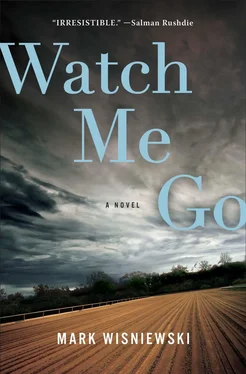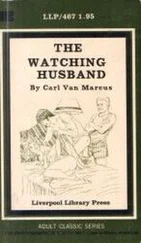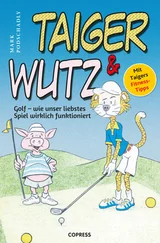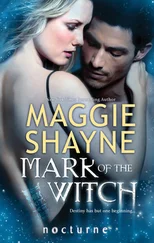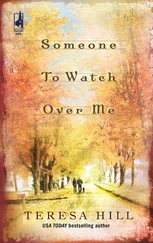And I felt taller as I walked on, and then, to my right and just south of the boulder itself, there it was, a huge, brightly moonlit meadow with a creek angled across the middle of it and a birch-log fence all around.
And compared to the darkness in the shadow of the boulder, the brightness here, on top of the openness, made you downright joyful, not to mention that miraculous feeling you get when you stand witness to something as defiant of logic as a meadow dropped into the middle of woods thick as hell. But then I noticed an uninhabited, shabby lean-to near the southernmost run of fence, and out there near the creek, where horses might have been drinking, there were none.
And there were none anywhere.
And part of the fence was missing — that section of birch logs was down. Maybe, I thought then, a colt had felt too penned and took his best running start and leapt and failed? Or tore open his coat bolting straight through? Either way I now guessed why Colleen had been cagey: A horse had died and she hadn’t had the heart to tell me.
Then I thought, No. Not every thing ends with death. But I was glaring at the apple in my left hand as if it, rather than some six-foot muskie, was death itself, and I chunked it, hard, at the hole in the fence. My throw fell short, though it did bounce once and roll close, and I headed back onto the path to the house, where, as soon as I stepped inside the roadside door, Tom Corcoran glanced up at me, sitting as he was at the kitchen table.
He took stock of me calmly, as though women always trekked into his house at this hour, then asked, “What’s with the apple?”
“I thought there were horses.”
Spread out in front of him, I noticed, was a Daily Racing Form .
“There were,” he said.
“And?”
“Is it really your concern?”
“Well, I think I can say it is .”
“Well, then, let’s just put it this way: We had a small mishap.”
“When horses get lost in a forest, I wouldn’t call it small.”
“Then call it big.”
He turned the page of his Form , his way, I was sure, of saying he was done with this conversation, either because Tug’s farm was indeed none of my business or because the numbers in the Form were all that should matter to anyone. I pulled the screen door behind me harder, trying for a click I never heard, then stepped cautiously toward him and set the apple back in the bowl, and as I headed for the living room to return to the summer porch, he said, very quietly, “You’re just like your father.”
I stopped, facing the living room, which of course meant facing the lake.
“I mean, he was always going out in the middle of the night.”
I turned. “You mean for walks?”
“Sometimes the man would run .”
“At night?”
“He’d be out there getting a complete workout while every other jock was asleep. I’m surprised your mother never told you.”
“My mama would rather pray to a ceiling than tell me the truth about my father.”
Tom’s watery eyes, unblinking and hazel and magnified frightfully by his glasses, wandered from me to the sink. Then he returned to studying his Form , a script more important, it seemed, than every father and daughter and family in the world. He struck me, as he squinted to read, as a formerly handsome man who might feel expendable; a husband whose paunch had diminished some attraction to him; a father whose thinned, graying hair probably scared the hope out of his son; a jockey whose retirement hadn’t exactly helped the prospects of that same son’s horse farm.
“Come to think of it,” he said. He starred an entry with a plastic pen. “Early in your dad’s career, he used to ride at night.”
“Thoroughbreds?” I asked.
“‘Just trust and let ’em run,’ he’d say.”
“ Real ly.”
He nodded. “The guy would slip the track’s night security a little cash, then go crazy out there, galloping in the dark. He believed horses were happiest when they ran at night. If you rode one through the dark, he’d say, you’d be forming a bond that would help you win together from then on.”
What I was hearing right now, I figured, was Tom Corcoran being a plain old horse guy.
He said, “The thing was, I tried it once, riding in the dark. Horse I was on wouldn’t budge.”
And we were both studying each other’s faces then, as earnest, it seemed, as two people could be, though I had no idea what he was trying to say — other than that he had his own big mess of regrets and nostalgia and resentment and desire stuck in him, trying to charge out.
I GLANCE OVER AT BARK,who nods. Then I see that the horses are running, already on their way down the backstretch. Because of their distance, I can’t tell if we’re winning, and then, because of the odds board, I can’t see them at all. I hear names being called, but to us it’s all about the one and the three. Then I see every horse out there bunched into a pack, and as they reach the far turn, what looks like a three is in second. Then they’re in their best full sprints toward and past Bark. Then they’re passing me, getting whipped, with the three for sure in front. But the rest of them are gaining — or maybe they’re not. The three might be fading, and a woman in the grandstand screams. And then I watch the rear ends of ten horses, and I haven’t seen the one at all.
WHENEVER TUG COULD,he’d fish with me.
And I always insisted that I, rather than he, do the guy stuff. I’d be the one to hook the baitfish under its spine, and it was my eager fingers that adjusted the float, and I’d add a split shot by using my molars as pliers.
And, most splendidly, I hoped, I’d cast.
Then we’d sit in silence that would ratchet up Tug’s insides, because, as I’d learn later, he always felt far too serious when he was with anyone quiet, especially anyone who knew horses. As a kid, Tug had rarely heard silence at the track, where either some trainer was gossiping workout splits or some hot-walker was cooing into a two-year-old’s ear, or some barn hand’s hose water hissed while the track announcer yelled Who’s gonna catch him? during a stretch run. The silences Tug had grown up hearing, certainly the memorable silences now, had been between his parents, often just after his father had lost so much cash at the track he’d refer to the experience as a “gofak” (good old-fashioned ass-kicking). So, for Tug, silence now went hand in hand with a truce called between spouses after vicious arguments about unpaid bills; it implied a woman was scared because a man had violated her trust, or that a man was at his wit’s end because a woman herself had agreed he should place some huge bet he’d then lost, not to mention his head was spinning because the last time he’d won on a long shot, they’d both agreed that he should have bet more than he had. Such silence had too often spilled out onto the yard and sometimes even past the first piling or two of the pier, and too often Tug would retreat to the far end of the pier, where, if waves or wind or geese didn’t speak up, he would hear silence as a pronouncement that he was maturing into his parents’ worst financial burden.
Often, during the silences between me and Tug while we’d wait for muskies to bite, I would think about my own father, and I’d picture the baitfish down near the sun-bleached weeds, or my father’s breathlessness in the ancestors of those weeds, or both, and I’d wonder if my father’s ashes had dissolved or joined the muck at the bottom.
And as Tug would admit later, he’d be thinking of my father’s death, too, and he’d figure there was nothing he could say to fix any of that horror, so instead he’d just dangle his legs off the deep end of the pier, facing the far shore, reading the pathetically upbeat hardbound his mother had bought him at a tag sale, So You Want to Practice Law . He’d apply this book’s advice to the man his parents wanted him to be, the man who might finally make something of himself now that his horse farm had failed. He would despise that man — a student and then parasite of law — and sometimes, while he’d read, he’d sense an unsteadiness beneath his thighs, a quivering that was sometimes his imagination but sometimes meant someone on the pier was walking toward him, sometimes me.
Читать дальше
